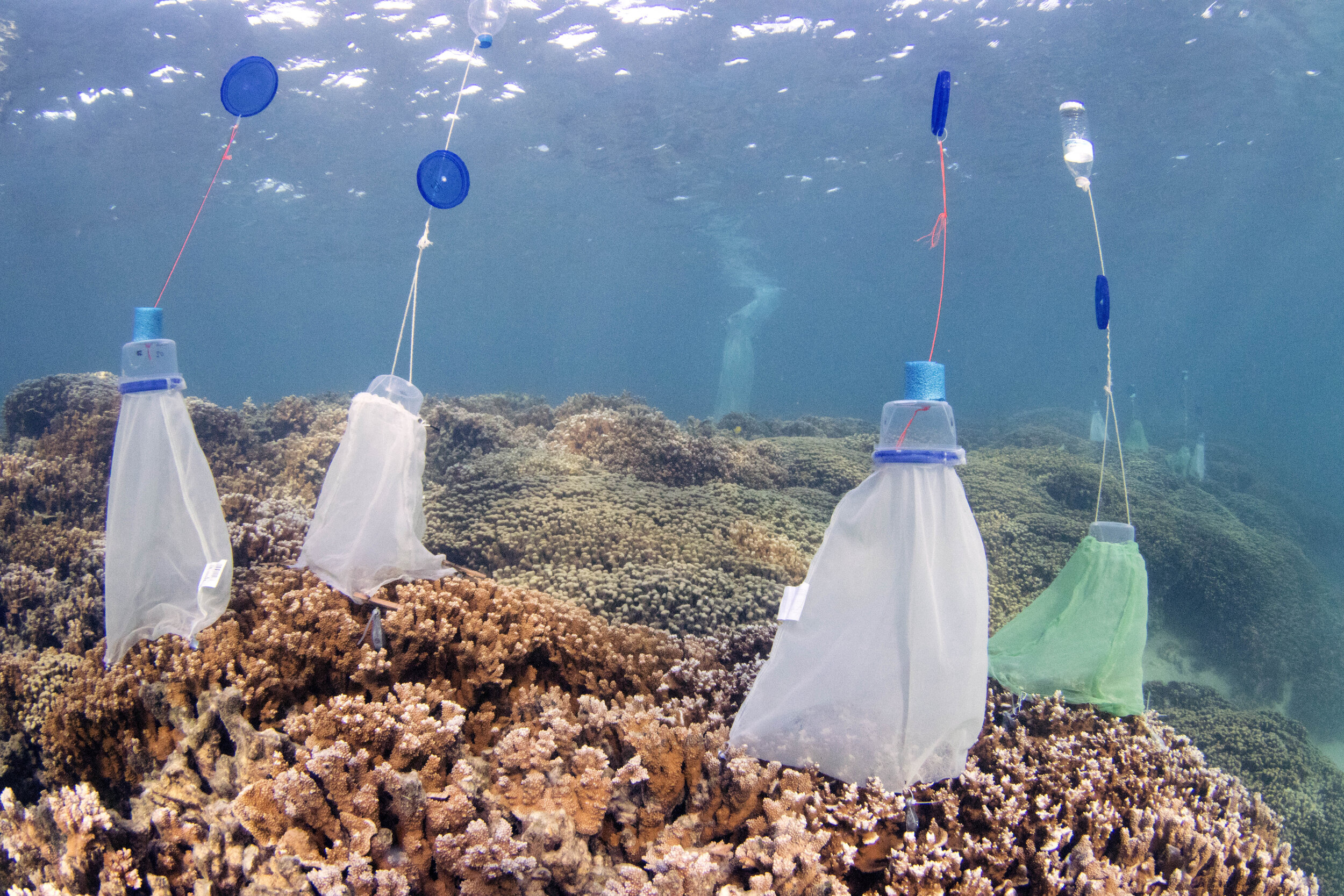Selective Breeding
Assisted evolution is the idea that human intervention can accelerate naturally occurring processes, such as adaptive change, for the benefit of coral reefs. Our team now approaches assisted evolution primarily through selective breeding, which provides a framework to explore adaptation and genetic drivers of tolerance and their applications to restoration. These projects use parental colonies with known thermal tolerance. We also explore ‘post hoc selective breeding’, a tool to increase throughput by using a short heat stress to create a selective ‘filter’ to manipulate population wide traits without prior information.
Alana Eagle/Honolulu Civil Beat
Ongoing Projects
Bulk selective breeding and thermal assays to examine selection effects and the ability to increase heat tolerance
Development of ‘Post-hoc selective breeding’ techniques to increase throughput and target traits of interest, in this case higher thermal tolerance
Proportionate pooled crosses to examine the rate of adaptive change on coral reefs
Optimize individual crosses to define maximum thermal tolerance
Publications
Drury C, Bean N, Harris C, Hancock J, Huckeba J, Martin C, Roach T, Quinn R, Gates RD. Intrapopulation adaptive variance supports thermal tolerance in a reef-building coral. Communications Biology (2022). Link.
Drury C, Caruso C, Quigley K. Selective Breeding to Support the Long-Term Persistence of Coral Reefs. Coral Reef Conservation and Restoration in the Omics Age (2022). Link.
Barrows A, Hancock J, Cohen D, Gorong P, Lewis M, Louie S, Mussleman L, Caruso C, Miller S, Drury C. Enhancing Survivorship and Growth of Juvenile Montipora capitata using the Hawaiian Collector Urchin Tripneustes gratilla. PeerJ (2023). Link.
Johnston EC, Caruso C, Mujica E, Walker NS, Drury C. Complex parental effects independent of symbiont community impact variation in larval thermal tolerance in a vertically transmitting coral. Heredity (2024). Link.
Roach TNF, Drury C, Caruso C, Hancock JR, Martin C, Neubauer K, Matsuda SB, McClinktock R, Santoro EP, van der Geer A, Varela A, Quinn RA. Intergenerational metabolomic signatures of bleaching resistance in corals. In Press (2024).
